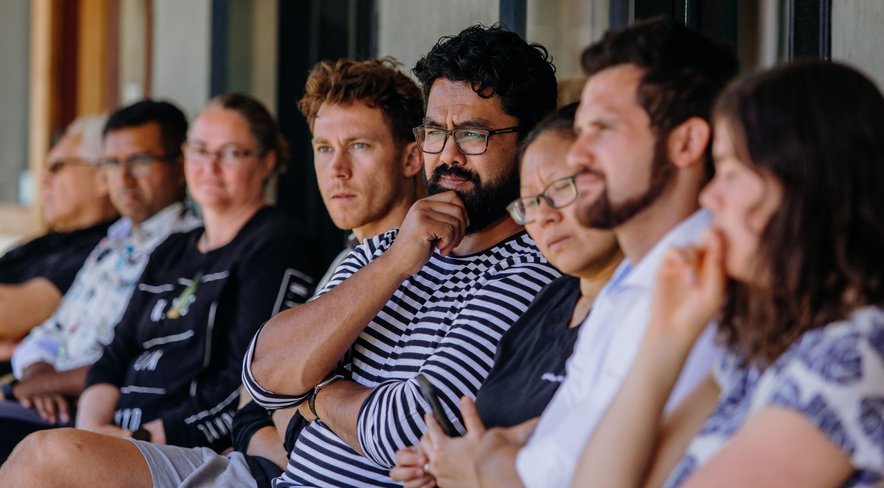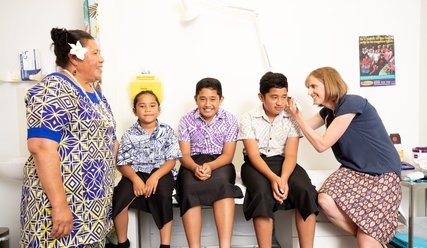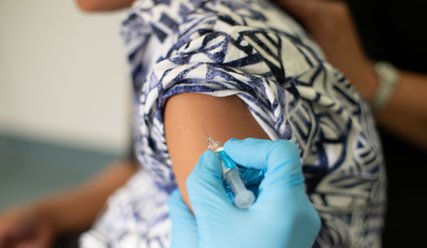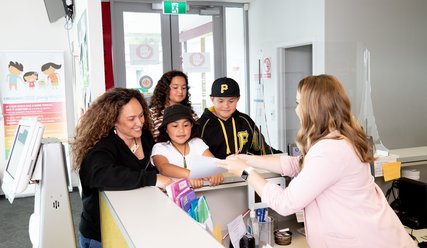This morning we began a ritual of encounter
This year, for the first time, The Royal New Zealand College of General Practitioners combined the orientation day for GPEP year one registrars with the Hauora Māori Health Day that usually happens further into the year. The new two-day events, named Te Ahunga, were held at marae across the country with the intention of understanding the importance of indigenous health and equity, and the positive effect a GP can have on the health transformation of their community.
It was a warm February morning when the Hawke’s Bay and Gisborne contingent were welcomed with a pōwhiri onto Te Aranga Marae in Hastings. The group included College CEO Lynne Hayman, College Board member and lead medical educator Dr Kiriana Bird, Tumuaki Head of Equity Te Oraiti Reedy, medical educator’s Dr Patrick McHugh and Dr Stefan Freudenberg, and nine GPEP year one registrars.
The pōwhiri (ritual of encounter), is a way of meeting; acknowledging the history and stories of the people present and understanding whakapapa so that connections can be made, and bonds formed.
The start of any new relationship needs certain events to ignite a spark. Physical distance, conversation, and being open to the experience of sharing. It’s a ritual we can do several times a week without realising and one that, depending how it’s approached, can change the course of a life.
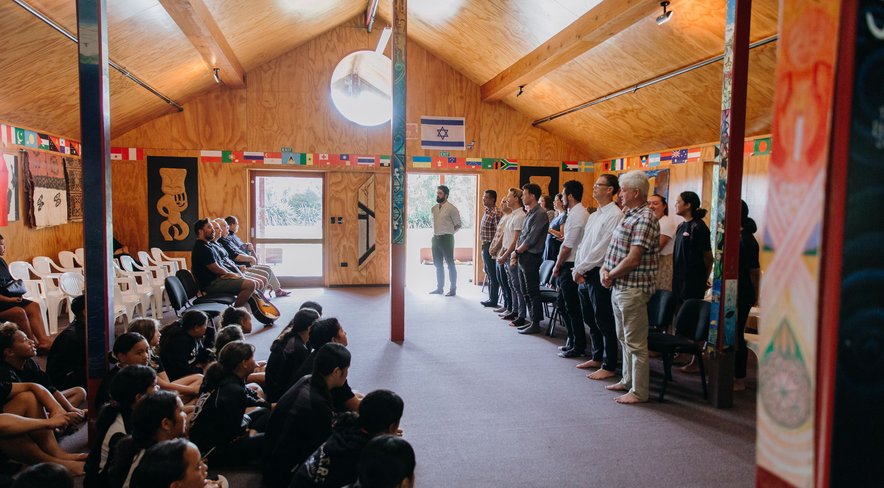
When you’re a GP and your ritual of encounter is meeting with a patient, you both bring history and beliefs to the scenario and what happens next depends on how you begin your ritual. Every person carries with them, regardless of age or ethnicity, a rich history; their heritage, their lineage, their experiences, the strands of themselves; the loves of their life, and their suffering. It all comes together to make us who we are.
When manuhiri are welcomed onto Te Aranga marae, they travel through a Waharoa, a passageway known as Te Kowhao O Te Ngira, or the ‘eye of the needle. It’s a physical representation of the concept of threads (people) coming together to thread into one strand. At Te Ahunga Hawke’s Bay those threads are diverse: registrars who’ve had careers in marketing and advertising, one doctor who used to work as a roofer, one on her fourth specialisation (general practice will follow paediatric surgery, urgent care, and emergency medicine), people who’ve training overseas, and those who followed their parent’s path to medical school.
When our strands reach the wharenui we share stories and song. It’s intimate. Open. Honest. And it’s the kind of deliberate, revealing, best-practice relationship that should be how patients encounter their GP. It’s the stories that allow others to say, “repeat your grandmother’s name, I think I knew her,” and “I visited your country in the 1970s and this is what I loved about it.”
It’s how GPs should encounter their patients, but it often isn’t.
Te Aranga kaumātua Des Ratima shared a story with the registrars of his friend with a hip issue so severe he could no longer sit in church. He spoke of accompanying his friend to see his GP because after three years he was making no progress on getting a hip replacement. His GP, with his back to his patient during the consultation and tapping on his computer (clearly distracted) had decided before any discussion that this man’s need was for more painkillers. There was no ritual of encounter, no eye contact, no openness, no face-to-face.
After changing GPs, the patient was in the hospital within a week for his hip operation. His life changed. He’s no longer in pain, he can provide for his family, and he can sit in church because someone took the time to listen before they spoke; because they took the time to acknowledge the strands of that patient’s story; they stopped and listened before they started the medicine.
“I will always carry what I carry but I’ll only share with you what I want to,” says kaumātua Des. For the new GPEP year one registrars it’s a key clue about how to best engage with their patients, and a very Hauora Māori approach.
It’s easy to become ‘too busy’ or to not take a minute to stop and greet another person. It’s always easy to take the easy option, to think you understand the issue, the surface detail of what another person has said to you. But take the time to listen, share, and encounter another person and you may just change a life. The chance of that increases markedly if the life you encounter is in a GP-patient relationship.
